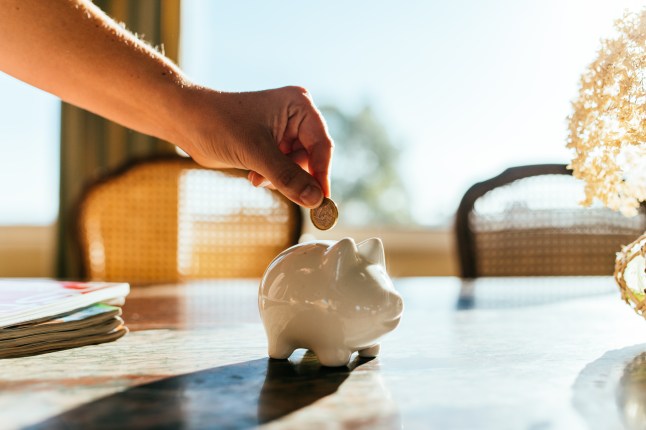
Are you bankrupting yourself with ‘little treats’? (Picture: Getty Images)
Listen to article
Listen to article

Your browser does not support the audio element.
How we feel influences how we spend our money.
Young people in particular, disappointed by their low financial prospects, have swung the other way and started spending. Other surveys point to people spending as a way to get out of emotional lows.
It’s estimated that Brits spend £41billion each year on impulsive, emotionally driven buys.
As we move into winter, a time when seasonal affective disorder might rear its ugly head, or when fatigue and burnout from heightened socialising and pre-Christmas work deadlines collide, our finances might take more of a hit. When we don’t feel our best, we’re more likely to seek out comfort in the form of spending.
Liz Kelly, therapist and author of This Book Is Cheaper Than Therapy, tells Metro: ‘When we feel down, it’s essential to have compassion for ourselves, so it’s natural to crave some form of comfort. The short-term dopamine rush of a new pair of shoes, a skincare item, or sports gear is enticing.’
The problem is, the credit card bill that later comes might lead to more stress… and so the cycle continues.
Kelly advises her clients to think about their personal values when this temptation hits. If you value health, you might choose to pause and put the money you were considering dropping on a Primark t-shirt towards an exercise class instead. That way, the spending leaves you feel better, not guilty.
To view this video please enable JavaScript, and consider upgrading to a web
browser that
supports HTML5
video
Another way in, is to reframe how you perk yourself up when low mood hits. A new survey from the Post Office found that two thirds of those polled actually lift themselves up by transferring money into a savings pot.
By moving £30 into your own holiday fund pot, rather than into a Nando’s takeaway order, you might get to experience the satisfaction, control, and happiness those polled experienced.
A third of the 2,000 adults polled said it only takes as little as moving in £1 to their savings to get a ‘thrill’, and feel less stressed.
Professor Brit Grosskopf, professor of economics at the University of Exeter, explains that reframing saving as a way to feel better can help us break the needless spending cycle.

Retrain the brain away from emotional spending (Picture: Getty Images)
‘When we’re feeling low, our brains crave a quick boost of dopamine and buying something can deliver that instant reward. The trouble is, it’s fleeting – the pleasure fades quickly. You can try to replace the ‘dopamine hit’ from spending with something that delivers a more lasting sense of reward, like moving money into savings and watching your progress grow.’
Grosskopf says it’s about retraining the brain to link positive emotions with saving and stability, rather than spending.
‘A useful first step is to pause and understand what’s really driving the impulse to spend,’ she recommends.
‘Often, it’s not about the item itself, but about soothing an emotion – perhaps stress, boredom, or the need for a sense of control. Naming that emotion can help break the automatic link between how you feel and what you buy.’
Creating space between the impulse and the action is key. Grosskopf says one trick is if you’re browsing online for instance, put the items on a wishlist instead of in the shopping cart – that way you can review this 24 hours later, and likely with a clearer head.
‘Another helpful thing is to look back over your recent purchases and highlight which ones genuinely added value to your life and which didn’t. You’ll often see clear patterns – for example, spending more after a difficult day – and that awareness alone can shift behaviour.’
The association between spending and joy is deeply ingrained, so don’t be too hard on yourself if it takes time to shake this off in favour of saving. Grosskopf thinks imagining the future, and where you want your finances to be, can help move you out of impulse spending.
Kelly suggests looking to free or low-cost things with a wellbeing benefit in times of burnout or low mood. That might be a hike, tidying up the possessions you already own, or reaching out to a friend. The urge to shop might go – and your wallet will stay intact.
Arrow
MORE: How to spot nightmare neighbours before buying a home
Arrow
MORE: I ditched overwhelming bills in the UK for Doha sunshine — and no longer ‘work to exist’
Arrow
MORE: Friends discovered I was £22,500 in debt when they found my secret Instagram
Comments
Add Metro as a Preferred Source on Google
Add as preferred source
The Slice
Your free newsletter guide to the best London has on offer, from drinks deals to restaurant reviews.

